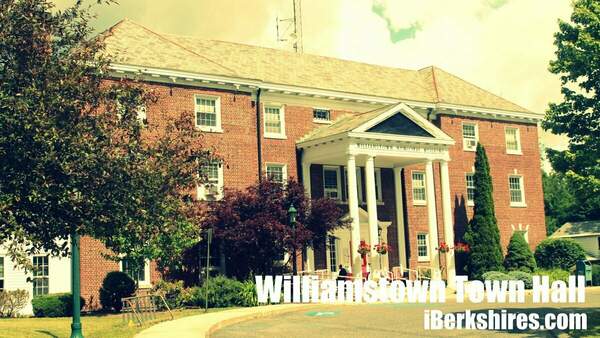
Bylaws To Save Williamstown Farms Still Debated
WILLIAMSTOWN, Mass. — A zoning amendment to help farms is still in flux after the Planning Board asked to add more regulations to it.The proposal is broken into three town meeting articles that would allow farms to host weddings, celebrations and concerts as well as add exercise, yoga, art or crafts classes. The proposal is coming as a citizen's petition from Cricket Creek Farm. However, planners asked farm representatives on Tuesday to consider making the uses by special permit instead of by right so town officials have a stronger say over individual cases.
The proposal will not just apply to Cricket Creek Farm but all farms that are looking to make an extra buck in order to stay alive. Farm officials crafted the rules that will end concerts at 10 p.m. and limit them to 40 people, and end weddings by midnight. Yet, no provisions of noise levels, number of events or access are specifically included nor is the term celebrations defined.
On the suggestion of Zoning Board of Appeals member David Levine, the board asked the farm to consider adding those regulations and making the events on a special permit basis. Levine said the ZBA can authorize a multiple events for a number of years at once. The special permit will alleviate the farmer's fear of not knowing if they can or can not schedule an event in advance as well as give planners a chance to review how the changes are being utilized, planners said.
Sherwood Guernsey, a Cricket Creek trustee, said he had no problem with limiting the number of events but disagreed with going through a special permit process. Weddings are planned so far in advanced that it would hamper the farm's ability to book those events, he said.
"We could limit it... I know they're not going to do a lot," Guernsey said. "This is not going to be their central business."
Board members are in full support of the concept because they believe farms are an asset to the community. Member Christopher Winters added that maybe the planners should look at opening the regulations to all properties with more than 25 acres. Winters said it could help large property owners pay their taxes or companies to have additional resources. However, that idea did not get support from the board.
"We're not really in favor of having weddings; we're in favor of saving farms," Ann McCallum, board member, said.
While the supplemental income would help Cricket Creek, resident Robert Greenberg, who lives right next to the farm, opposed allowing any of the activities.
"We moved here to get away from what they are trying to do," Greenberg said. "It spoils what we cherish in South Williamstown."
'If we do one wedding and make $1,000 or $2,000, that's a lot of cheese we don't
have to sell.'
|
Cricket Creek owner Topher Sabot said that the farm has just barely made it by financially in recent years and by doing just a few weddings during the year will help sustain the farm for generations. He also added that hosting events such as art classes and small concerts is exactly what the farm has always intended to do.
"If we do one wedding and make $1,000 or $2,000, that's a lot of cheese we don't have to sell," Sabot said. "Our goal with Cricket Creek is to a) protect the land and b) be a community resource."
While under no requirement to do so, Guernsey agreed to rework the proposal to accommodate the board's concerns. The Planning Board continued its public hearing on the proposal for two weeks. The Planning Board will only vote to recommend voters to approve the proposal or not.
A Planning Board-driven proposal to allow second dwelling units in some parts of town was also continued after residents expressed concern over allowing new construction.
Planners hope to allow people to turn garages or barns into apartments or second homes to increase density downtown and lower the town's housing affordability, both ideals set out in the town plan. The board's proposal will allow residents to turn garages or barn into small apartments or secondary homes for family members.
While new construction is limited to 900 square feet, residents feared that it would have harmful effects in neighborhoods. The intent of allowing new construction, according to board members, is to give residents options. If the property owner has a dilapidated barn he would like to use for a second dwelling, he should have the option to tear it down and rebuild instead of just renovating.
Tags: agriculture, bylaws, South Williamstown,















